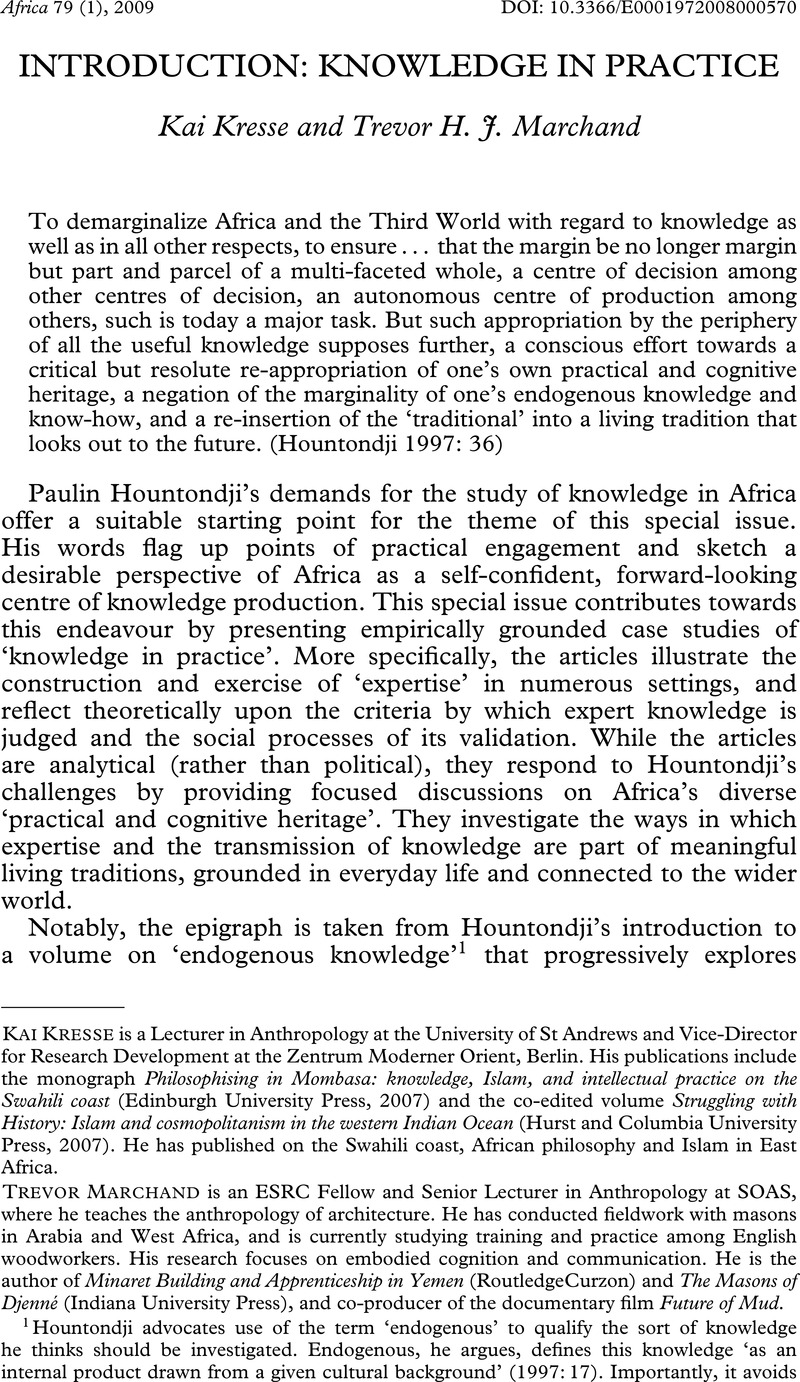Crossref Citations
This article has been cited by the following publications. This list is generated based on data provided by Crossref.
Hills, Alice
2012.
Globalising Security Culture and Knowledge in Practice: Nigeria's Hybrid Model.
Globalizations,
Vol. 9,
Issue. 1,
p.
91.
Gagliardi, Susan Elizabeth
2018.
Art and the individual in African masquerades Introduction.
Africa,
Vol. 88,
Issue. 4,
p.
702.
Graboyes, Melissa
Meta, Judith
and
Clarke, Rhaine
2022.
Mazingira and the malady of malaria: Perceptions of malaria as an environmental disease in contemporary Zanzibar.
Studies in History and Philosophy of Science,
Vol. 95,
Issue. ,
p.
134.
Yurur, Gulkizilca
2023.
Medicinal Herbal Knowledge and Identity in a Tribal Setting: Locally Specific Composite Wound Balm Formulas in Tunceli, Turkey.
Human Ecology,
Vol. 51,
Issue. 2,
p.
337.





